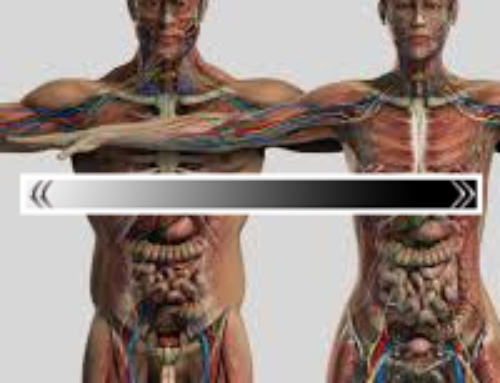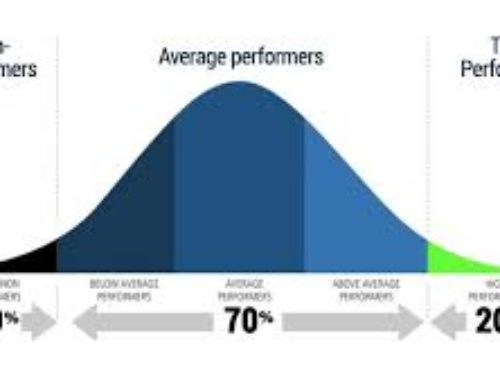DMX is slippin' into PTSD
“Literally at this second, like in everything that’s happening in the world, being a human is pretty much the hardest thing to be” (Oh Wonder 2016)
Ever since Plato founded the first educational institution in the western world the question has been posed “what does it mean to be a human”? Over the centuries philosophers have taken a crack at it. Nietzche claimed that “to live is to suffer, to survive is to find meaning in the suffering”. The mathematician Descartes simple edifice “I think, therefore I am”! became a mainstay in human consciousness when it was penned at the turn of the 17th century. Muhammad Ali also threw his hat in the ring with the statement “I float like a butterfly and sting like a bee”! Aside from the philosophers in the world, have you given a deep thought about what it means to exist? Many people seem to float through this life like a butterfly, effortlessly without signs of a problem or care in the world; however, there is a subset of people who carry the burdens of worry so deep into their psyche, that they cannot imagine a life without anxiety, worry or fears. When life issues go beyond the surface of the skin, their problems devolve into psychological issues that manifest in mental illness in many varying ways.
DMX is a music artist from New York. He featured some of his personal trials, failures, and victories in his song “Slippin’” (DMX 2019). Hidden within the penmanship of this brilliant song, is the underpinning of a person who has suffered and continues to suffer from post traumatic stress disorder (PTSD). With this paper, I intend to paint a picture of how PTSD affects individuals and communities alike and how this particular music artist has traveled through his own mazes to find his way through his illness.
Slippin’
Slippin’ is a street term indicating that someone, a high performer, is no longer at the top of their game. For DMX, he began slippin’ at the age of 7 when his father left him. His lyric’s about this time in his life deeply reflects his childhood perspective of when his family broke apart. He internalized the event and believed that his father left him and did not see the picture as though his father was leaving the entire family. Subsequently he began committing crimes that had him serving jail time at a young age. Like many young people he asked himself if it was his fault and wondered if it was something that he did which triggered his father to leave. In doing so, he exemplified signs of adjustment disorder whereby as a child he did not have the coping mechanisms to handle his father’s departure. A deeper personal reflection in the song indicates the complications that arose in his life when his mother began “drama”, which in the context of his metaphor means physical abuse, which forced him to leave his home and flee to the streets. When he left his home, he packed his luggage, a love for dogs, and an internal desire to succeed. But for him, his personal mantra came at a cost.
As a minor, he spent time in and out of boys’ homes, group homes, and profit-driven jail institutions. As he grew older, he buried his feelings and emotions and frequently incited drug fueled conflicts with people who only mentioned his short stature or who gave him what he thought was some sort of “beef”. Furthermore, his street crimes grew more aggressive and more frequent. He subsequently entered jail more than 30 times to date. (Daniels 2019)
In addition to violent outburst, he often self-medicated using crack cocaine which he terms “L” or “Rock” within his song. Crack cocaine distribution in the 80’s was to the black community what the “opioid” epidemic means to the white community today. Someone purposely brought drugs into black communities and fueled the rise of the industrial jail complex. With a lack of jobs and resources within the community, young hustlers stood on porch stoops or street corners and sold drugs. Images and warnings of this lifestyle are made popular by movies such as Boys in The Hood, New Jack City, and Sugar Hill. Rappers and hip-hop artist also raised their voices and used their musical platforms to alert members of the community to stop their self destructive behaviors and unite for common causes that can bring everyone together (BDP, 2011). Nation of Islam Minister Louis Farrakhan and Benjamin Chavis, Jr., a former executive director of the NAACP, also responded to the deterioration of African American communities when they called for the gathering of 1,000,000 black men at the Washington Monument that occurred on October 16, 1995. The event, dubbed the Million Man March, was organized “to bring about a spiritual renewal that would instill a sense of personal responsibility in African American men for improving the condition of African Americans.” (Britannica 2019)
According to Videbeck, people may experience events in their lives that are extraordinary in intensity or severity, well beyond the stress of daily life. These traumatic events or stressors would be expected to disrupt the life of anyone who experienced them, not just individuals at risk for mental health problems or issues. The trauma or event may affect a single individual, such as a person with a history of childhood abuse, … (Videbeck, 2017).
DMX viewed his childhood as intense and viewed his treatment from his family as severe. His spiral into a life of reoccurring crimes could possibly have been staved off had he received counseling or support after his family’s breakup. Unfortunately his age was against him as well as a community stigma associating a person seeking mental health support as being crazy, gay, or weak. In the African American community if you are labeled with either one of those distinctions your life will be met with ostracism and abuse; that abuse can either be self-inflicted or community-inflicted. In a commercially driven economy, people often do business with people who look like them and the black community is devoid in mental health professionals of color. This void is often filled by well-meaning people, namely church pastors or community elders, who shell out words of wisdom for a person to “be strong” or “man up” instead of taking the time to treat the root of the problem. It is said that it takes a village to raise a child. I would further state that depending on which village you are born in your resources may be limited and many African American villages and rural communities are floundering due to poor resources.
Additionally, he demonstrated elements of PTSD when he “Didn't keep my haircut or give a ---- how I dressed I'm possessed by the darker side, livin' the cruddy life, ish like this kept a ----- with a bloody knife, Wanna make records but I'm -----' it up, I'm slippin', I'm fallin', I can't get up” (DMX 2019). This stanza alludes to the three major elements of PTSD which are recurrent and intrusive thoughts; showing emotional numbing such as feeling detached from others; and being on guard, irritable, or experiencing hyperarousal (Videbeck, pp. 217). For DMX his saving grace was the birth of his son and his desire to do right by him. As a father, he pledged to abstain from drugs and alcohol; however, there is no mention of seeking medical treatment although he may have received some, albeit he did not declare his health intervention publicly. Once he was off the drugs he returned to his former heights by dressing appropriately and taking care of himself. In essence he slipped back to the top of the charts by chronicling the problems that plagued him, children who were victims of abuse, the African American community, and any citizen slippin’ through life with untreated PTSD.
What can Nurses do to help people like DMX?
As health care professionals nurses come in contact with people from all walks of life. They are trained to meet their patients wherever they are in their healthcare crisis. Often, nurses will find themselves faced head on with someone who does not look like them nor share their beliefs. Their only reference for that culture may be films that feature stereotypes, textbooks that are culturally lopsided, or abstract caricatures depicted in stage plays.
As nurses, we must understand that we have to treat the cause and not just the symptoms. We must recognize that PTSD appears in many shapes and forms and that not every patient that comes to our care is drug seeking. They may have pains and injuries from traumatic events in their life that remain unseen. We can become a source of information about their diseases and help them to understand that it is not necessarily their fault. We can inform our patients about community treatment solutions such as the ADATC program available in North Carolina. The state operated facility is “specifically designed to provide inpatient treatment, psychiatric stabilization and medical detoxification for individuals with substance use and other co-occurring mental health diagnoses to prepare for ongoing community based treatment and recovery”. Their website is a good source of information and a great start on the recovery journey (https://www.ncdhhs.gov/). By changing how we view individuals with PTSD we will get to the root of the problem and treat the cause.
References
BDP, Stetsasonic, Kool Moe Dee, MC Lyte, Doug Fresh, Just-Ice, Heavy D, Chuck D – Self Destruction (November 27, 2011). Self-Destruction (Official Video) [Video File].
Retrieved from https://www.youtube.com/watch?v=MmX5TgWsfEQ
Britannica, T. E. of E. (2019, October 9). Million Man March.
Retrieved October 18, 2019, from https://www.britannica.com/event/Million-Man-March.
Daniels, K. F. (2019, September 24). DMX opens up about life behind bars: 'Jail was a playground for me'.
Retrieved from https://www.nydailynews.com/snyde/ny-def-jam-dmx-prison-life-jail-was-a-playground-for-me-20190924-jty2miapmrdk7lqna2tmauybgi-story.html.
DMX (June 16, 2009). Slippin’ (Official Video) [Video file].
Retrieved from https://www.youtube.com/watch?v= 9Ww-TQUeA3E
Oh Wonder (Oct 18, 2016). All we do(Official Video) [Video file].
Retrieved from https://www.youtube.com/watch?v=xPGREQvK-dQ
Videbeck, Sheila L. (2017). Psychiatric-mental health nursing (7th ed.). (pp. 215)
Wolters Kluwer.
BDP, Stetsasonic, Kool Moe Dee, MC Lyte, .....
DMX - Slippin' (Official Music Video)
Oh Wonder - All We Do
Semper Fi!
If your crisis is immediate dial 911 right now.
Maury Osbourne 602-703-2638
VA
Veteran suicide prevention
- Call 800-273-8255, then select 1.
- Start a confidential conversation.
If you’re a Veteran in a mental health crisis and you’re thinking about hurting yourself—or you know a Veteran who’s considering this—get help right away. You’re not alone.







Leave A Comment
You must be logged in to post a comment.